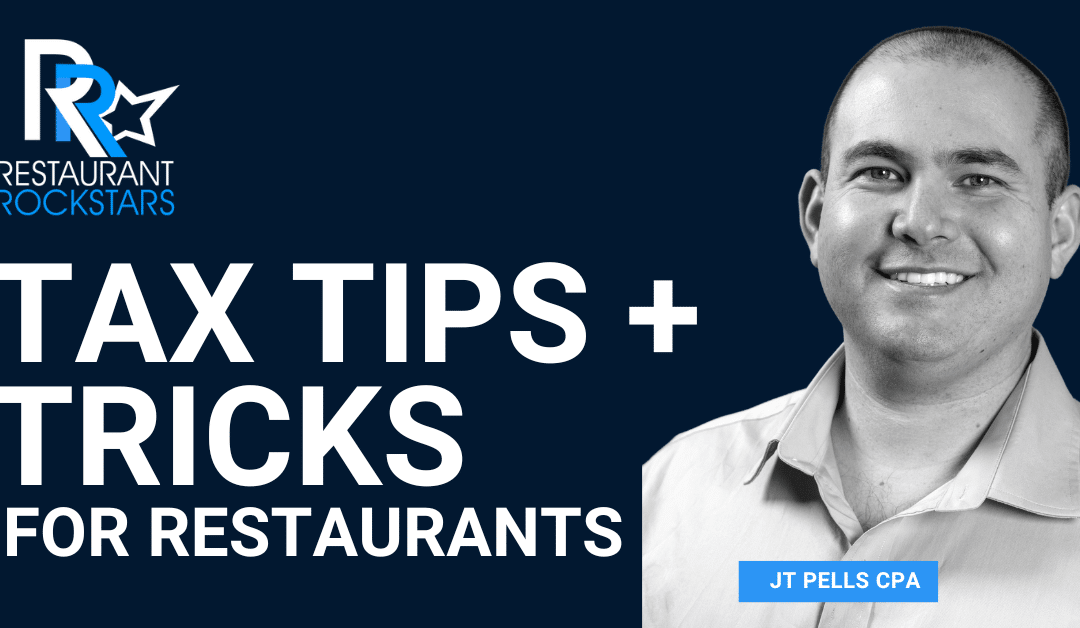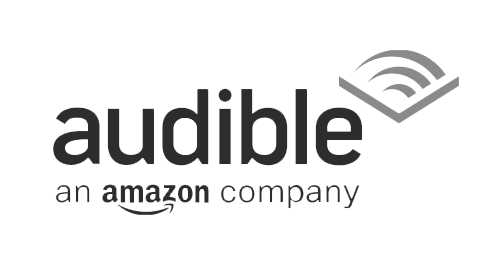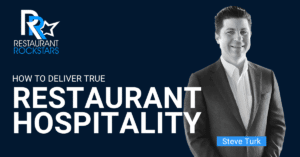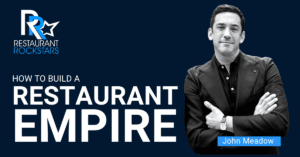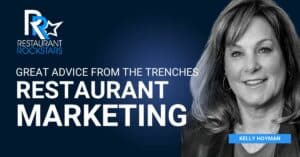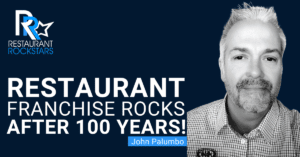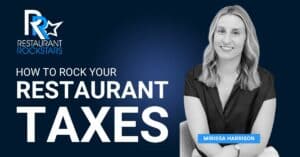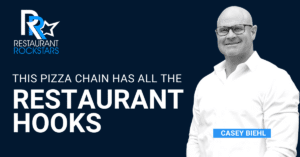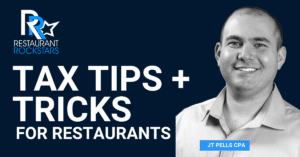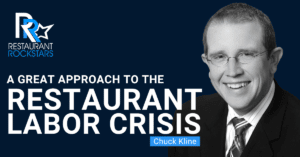Restaurant Rockstars Episode 367
Tax Tips + Tricks For Restaurants

LISTEN HERE OR ON YOUR FAVORITE PODCAST PLAYER
Your restaurant is probably paying too much in taxes!
Now, that I’ve got your attention I get it, you’re the restaurant owner or GM, not the tax guy. But think about it, if you’re not pro-active about your money, nobody else will be.
In this episode of the Restaurant Rockstars Podcast, I’m speaking with JT Pells, CPA. JT is known as the “Tax Quarterback”. He specializes in tax tips and tricks (totally legal) to save, make, and keep more money!
This episode is power-packed.
Watch or listen as JT shares tax tips:
- How restaurant owners can live “tax free”
- The most common mistakes restaurants make with their taxes
- Why “tax credits” are like deductions on “steroids” and how to get them
- What your current tax provider or CPA might be missing in your restaurant
- How to maximize restaurant expenses to lower Net Income
- Tax Liability based on your restaurant’s form of organization
Like JT says, “You work your ass off in your restaurant, so why not give yourself every advantage to make and keep as much money as possible”?
JT’s giving away a free tax savings cheat sheet for our restaurant owner or GM listeners here: jtpells.com/rockstars
Don’t miss this episode, then go out there and Rock YOUR Restaurant!
Roger
Connect with our guest:
youtube – PellsCPA
instagram – @PellsCPA
facebook -@PellsCPA
Roger Beaudoin
Thanks again for tuning in. Now this episode is just power packed with money and cash saving tips from a CPAs expert perspective. My guest today Mr. JT Pells gives us all kinds of information, immediately actionable steps that you can take today maybe things that your current CPA or tax professional is missing things about your kids working in your business and monies that you can obviously pay to them and even invest for their future that will save your company money and will literally have your family work for you financially and in your business. Everything about home office deductions and monies that you might be missing, renting out a space in your home for board meetings and getting a tax benefit. The difference between a tax credit and obviously a tax deduction are huge and like JT says a tax credit is like a deduction on steroids. This episode is just full of information that if you’re a business owner or small restaurant owner or even a restaurant group owner, this is for you, so don’t miss it. Thanks to our sponsors of this week’s episode. Thank you audience once again for tuning in. Listen on.
Intro/Exit
You’re tuned in to the restaurant rockstars podcast powerful ideas to rock your restaurant. Here’s your host Roger Beaudoin.
Sponsor
Rock Stars The busiest time of the year is coming is your staff are ready for the holiday rush. Well this year give your team the gift of pop menu AI answering a simple solution for phones ringing off the hook. Ai answering handles calls 24/7 365 days a year so your staff can focus on in Person guests. Customize your greetings and responses, answer common questions, promote specials and events and send follow up links to ordering and reservations. Ai answering handles at all while escalating more complex conversations back to your team. Now never miss another tasty revenue opportunity. Pop menu is the marketing technology platform designed to make growing your restaurant easy. Discover more AI restaurant tools that turn your to do list into an already done list. Request a demo today and my listeners for a limited time will get $100 off their first month plus lock in one unchanging monthly rate. Go now to popmenu.com/rockstars again, get $100 off your first month at popmenu.com/rockstars.
Listen from one restaurateur to another. And I hope you GMs out there listening as well as paying attention. You know marketing should never be an experiment. Oh, I tried this or I tried that No, any of your valuable dollars that you spend on marketing should absolutely be trackable. You should know exactly where the business is coming from and that it’s driving return on your investment. You spend a certain amount of money, you want to make far more money in return from that marketing if you can track it. So pay attention. My friend Dyson runs a business called the birthday club and his program is done for you. Because we know that everybody dines out on their birthday. It’s a tradition, it’s a celebration. But not only do they not come in by themselves, they bring many friends with them. They usually have free spending and large check averages. It’s very profitable business. So why leave it to chance Why let your competitors get all the birthday business. So again, the birthday Club is a done for you program. All you have to do is check out www.jointhebirthdayclub.com/birthdayrockstar. It’s a great program. If I still owned and operated Restaurants today after decades. It’s something I would definitely be doing, but it’s worth checking out. So check it out. Join thebirthdayclub.com/birthdayrockstar.
Roger Beaudoin
Hey, JT, welcome to show today. How you doing? Thanks for being here.
Guest
Yeah, Thank you, Roger. I’m doing real well. I’m excited to be here. And we’re gonna talk about some good, good tax and accounting strategies for a lot of the restaurant listeners or restaurant owners that are listening to us today. So we’re gonna, we’re gonna have some fun and give you guys some good tips.
Roger Beaudoin
Well, you know, accounting and taxes and tax planning are not the most exciting topic, but you seem like a really interesting guy. And I know that you’re going to add a lot of juice to this episode. But it is critically important, you know, putting yourself in the best financial position, literally every week, every month every year is so vital to the bottom line of restaurants because the margins are so slim and you’re working so hard. It’s like why not keep as much money as you can. And I know that’s your philosophy. So glad to have you here.
Guest
No, so yeah, just like you said, yeah, you want to keep as much money as you can. So go ahead.
Roger Beaudoin
Awesome. You know, I found your website really interesting because he had some really cool testimonials and one was, you know One of the Shark Tank guys said that he’d hooked me up with his account. And I said, Nope, I got my guy. And then in other another place called you the tax quarterback. So tell us about, there’s some personality behind that. But clearly people really welcome the advice they’ve gotten, you’ve saved them lots of money, you’ve made a big impact in their businesses. But why the tax quarterback? Is that kind of a moniker that now you sort of hang on the wall?
Guest
Um, a little bit of the I have to give credit to my partner Drew. He’s the one I think that kind of came up with the bulk did I think I sent it to a client or maybe he did where the client was complaining, saying, you know, I get this advice from my accountant or my CPA, but they just like, give me like, really vague generalities like, oh, you should do this. You could do this, you can do that bunch of if/thens. So I said, Well, I’m going to quarterback this for you, you’re going to do this, this and this. And I’m going to do it for you. How does that sound? And he’s like, Okay, I think when I said the word, I’m going to quarterback it for you. That’s how it came in. Now I tell people, I’m the quarterback, you’re the receiver, I’m just gonna throw it to you. All you got to do is you run to where I tell you, you catch it and go from there. Because I’ve found that most I’ve been doing this for years. Most CPAs? Like I said, they just give you the if/thens. Well, you can do this, if you do this. If you did, it’s like, no, tell me what to do. I’m coming to you. So I think that’s how it started.
Roger Beaudoin
Now every accountant or CPA has to follow what is called generally accepted accounting principles, and some are more conservative than others. And there’s always that question of how far can we push things without stepping over the edge where we become audited? Or we’re in some sort of legal challenge that, you know, and a lot of restaurant owners based on the margins want to push the envelope? Is there a fine line between pushing the envelope or what is really something that you can do? And it’s not a problem, like in your best advice?
Guest
Actually, so I liked what you said GAAP was good, generally accepted accounting principles, actually tell people I’m the most conservative accountant, or CPA in the world, I just follow what’s in the Internal Revenue Code. And we actually tell people, the Internal Revenue Code, or IRC is actually a playbook for people to live, low taxed, it’s we just follow everything that’s in the guide. We don’t tow the line, we don’t cross it, we just say if this, if the IRS allows it, we take it to the fullest extent. So that’s why I tell people and I tell them, as long as you’re not doing anything illegal doing anything shady, you have nothing to worry about. I’m here for you. And I’m going to tell you exactly how to do it.
Roger Beaudoin
Okay, that’s cool. So what should our audience expect to learn from you today? I mean, we’re gonna cover a lot of ground, of course, but you know, what’s really, really important? And what what do you want our audience to take away from today’s episode?
Guest
I think it’s, the biggest thing I want people to know is that you can significantly lower your taxes by doing things you’re already doing within your business. So we’re going to help you kind of uncover things that you’re doing, we’re just going to kind of help you record them essentially, on your books and how to go about that. And we generally I’m pretty good at generally looking at a tax return from somebody and pretty much picking out about 20,020 to $30,000 minimum that you could rearrange and I’d say save in taxes, I’m pretty good at looking at a return.
Roger Beaudoin
Okay, well, here’s a question for you. Yeah, a lot of our audience had been working with a tax professional for years, a lot of our audience are just starting new restaurants or new businesses and that sort of thing. Does it take time for someone like you to really understand someone’s business, and perhaps their past tax returns to really understand how you can help them best? Is there a learning curve, or you just have so much expertise that you’ve seen things 1000 times before, you can sort of make connections between what they’ve done what they might have missed and immediately be able to understand the business in order to help if that makes sense.
Guest
Um, it’s a little bit of both, for the most part in terms of accounting and taxes for restaurants. Yep, everyone’s pretty much the same. There’s not like Chipotle is going to have the same accounting software accounting practices that like a mom and pop shop is going to have maybe a little less waiters, but for the most part of the accounting side is going to be pretty similar. Normally, what I like to do is I like to look at your past two or three tax returns just to kind of see you know, what type of entity you have, basically what you’re not doing and kind of like I said, within the first five to 10 minutes, I can pretty much pick out about 20 to $30,000 in deductions that you should be doing now.
Roger Beaudoin
Youv’e got my attention, that should get everyone’s attention. It’s like okay, that’s gonna make that’s gonna move the needle on your situation for sure. So you’ve got sort of a slogan about living tax free. Tell us to the extent that that’s possible and sort of explain what you mean when you say that.
Guest
Yeah, it is very possible to live tax free, it does take work, I’m not gonna sit here and lie and say I can just do some witchcraft. And there you go, you don’t have taxes, it does take work. But one of the ways is kind of, like I said, making your personal expenses business now. What now, I don’t mean by lying or anything like that. But here’s a real easy one. A lot of restaurant owners actually don’t do this. A lot of restaurant owners don’t take advantage of the home office. Right? I’m sure you’re at home, we actually had a client, they are in there in the Midwest here. And then I asked my said, Do you guys have a home office? She’s like, Yeah, kind of, and I said, What do you mean, kind of and like, I’m really good at asking probing these questions. And the more she explained it, she’s like, well, actually my garage, right when the shutdown happened. We knew a supplier and we bought like, you know, I went out and bought an industrial fridge, put it on my garage, and I stored meat because I didn’t know when we have it. And it was huge. It took up. I was like, Oh, well, then you do have a home office. Because now like half your garage is your workspace. She’s like, Oh, I never thought of that. And then I kind of see your smiling like, Oh, no thought of that either. And then same thing with their home office, like, yeah, I have a home office. But I thought that I couldn’t have one if I have a retail or have a physical space. And I said, No, that’s not true. It’s an if we looked right to look right, in the Internal Revenue Code, and I said, Here it is. It’s right there. She’s like, Oh, my God, I’ve been missing. Like, what do you think I’ve been missing deductions last year? I’m like, Well, I’m guessing you could probably write off at least six or $700 a month in your home office expense. And she’s like, so that’s what is that like? $7,000? I said, yeah, probably she’s like, Oh, my God, I’ve just missed like, $20,000. Last year, as I said, Yep. Then there’s other ones where you can actually if you own your home, you can rent your home, to your restaurant to have board meetings, to have team parties to have social media shoots, and it’s all tax free and tax deductible to you. This is great stuff. Yeah. And that’s why I say it’s personal stuff you’re already doing right. You already have a mortgage, you probably have a business partner. A lot of times it’s a family member. Yes, you probably coming over to discuss business. Well, now you can just rent your house to you, you and your partner to have a business board meeting every month.
Roger Beaudoin
Let me ask it, let’s take that a little deeper. We’ll talk about the home office deduction, we’ll talk about renting out your house for board meetings and that sort of thing? Do you have to specify a certain accurate, fairly accurate square footage of the space actually used and then apply that to not just the rent, but say a portion of the utilities and the maintenance expenses, and all that kind of stuff? Depending on the percentage of that square footage to the total square footage of the house itself?
Guest
Yeah, you hit it right on the head. So it would take let’s say your home is 1000 just for easy numbers, 1000 square feet. And then you determine that 100 feet of that is used for your home office, you know, fridge, whatever you are industrial food, whatever you’re doing. Yes. So then you would be able to take 10% of your mortgage interest your rent. Hoas if you have them. basically any, as I say any shared expense. Like Like I said, your mortgage interest rent. Hoas, utilities. If you have a cleaning service come in insurance, you know, things like that. So we typically find that most restaurant owners aren’t doing that, because they’ve never been told them kind of like I see you kind of nod your head a little bit.
Roger Beaudoin
Ive never done that. I owned restaurants for 20 something years, and I never got that advice. So thank you.
Guest
It’s no and I find that a lot of accounts. And you can tell me if this was in your, in your particular case. Most accountants meet with their or sorry, most business owners meet with their accountants, like, you know, march 15, right right before the deadline. And at that point, it’s kind of too late. Like I can’t go back and say yep, hey, Roger, remember, like did you do that last year? No. Okay, well, let’s do it this year. And then I’m gonna go talk to this next guy who’s coming in and five minutes. So Roger, see you later. Here’s your taxes, IRS job done. And you’re gonna What did JT just say? I have no clue. And then you’re like, Oh, wait till next year, then you come in. It’s just it’s a vicious cycle.
Roger Beaudoin
Yeah we always sat down and did tax planning like early November. Okay, perfect. So we could go back and make changes and shifts before we close the books out before I then turned it over to my CPA. So sure, that’s a really good advice also.
Guest
Yep. Yeah, you want to be meeting and I’ve different restaurant clients where we’re meeting some meet monthly, some meet quarterly and like, we’re reviewing the books and say, Hey, like, what’s coming up? What’s down the pipeline? Like and we would just want to be ahead of it because, you know, it does happen fast. And you know, as we’re talking here in August, we’ve got five months left. So if you don’t have your books up to date, if you haven’t been writing off your home office, like we got to do that now like this, this is the time to do it.
Roger Beaudoin
Yeah, we always found November was a good time because you 90% of the year was over, he could see our revenues, he could see our expenses, he could see what we might be missing. And yeah, we got, we got really good tax position advice doing that. This whole board meeting thing triggered another thought everybody that owns a restaurant, or a small business of any kind has a car, they’re probably paying a car payment on it, can we deduct that for the business, if it’s say, lettered with logos, because I’m a huge believer in brand building, and I drove a pickup truck that was lettered from front to back with a logo of our business and our website and all that kind of stuff. And there was an you know, there was a deduction there granted, the company owned and leased my vehicles, which has some sort of a, a connection there. But let’s just say the average restaurant owner listening, this is driving a car to work, how can they get any benefit out of that car? If the company isn’t actually paying for that car? Do you suggest that the company buy the car, make the payments if they logo it up? Or what would you say that?
Guest
Um, the easiest way I would say is so one, if you just have one car for yourself, you know, and there’s one car that you’re driving to and from the restaurant, and then you obviously have your personal stuff, you know, like you take your kids to the Little League? Of course, I would not have the I would not necessarily have the company buy the car. There’s a few reasons why one year insurance will go up because now you’re driving a commercial vehicle, rather than a personal vehicle AQ. Putting the putting the logo on your car, it actually doesn’t make it 100% deductible. There’s a there’s been court cases all around for years. Now the the logos deductible, but it doesn’t mean that every second year driving, it’s advertising. Sure. So that. So that
Roger Beaudoin
versus business use, you need a percentage again, of how many miles a year, are you driving literally business legitimate purposes? Versus I’m driving the kids to little league.
Guest
correct the easiest way I would tell people to track their miles. Yeah, I know, it’s tedious that I’m not gonna sit here. There’s actually an app, it’s called Mile IQ. I think it’s like 30 bucks a year. And as long as you’re driving with your phone, which now that we’re all driving with them, sure. I’m guilty of it, too. Sometimes I’m looking at it as I’m driving. It’s not good. Don’t Don’t do that. But as long as you have it, that phone will track every single mile you drive. So now you don’t have to now you can take that report. You could turn it into your CPA, your tax preparer, whoever’s doing it, like, oh, how much did you drive? Here it is. And it’s totally backed by the IRS. So I would say it’s the bid. And then you’ll know how much you can write off on your taxes each year.So that’s the way I would do it. If you have a separate car, then by all means, you can have the restaurant drive it you can have or drive it, you can have the restaurant own it and lease it. Like you said, there’s benefits to leasing it versus buying. But for the most part, as long as you have a car that’s used 100% for business, you can have the business own it.
Roger Beaudoin
Excellent, great advice. What common mistakes do you see, say, restaurant or small business owners making a year like you kind of shake your head and say, I can’t believe it, but it comes up time and time again. And suddenly the light bulb goes off when you tell them and you’re like, Oh my God, I’ve been doing that for years. Eurika. It’s like, thank you. It’s like, do you see any common mistakes, things that people should absolutely be doing? Aside from what we just talked about with the home office thing and renting out your house?
Guest
Those are ones I think an easy one is bookkeeping, you know, a lot of restaurants don’t do it throughout the year. So I get a lot of whether it’s restaurants or not they come to me at new clients will come to me in June and I say okay, what are you making this year? And it’s like, I don’t know. And I was like, well can’t plan if I don’t know. But I’m actually going to give you one better, because that’s everybody says bookkeeping. And obviously it’s very important. Like, that’s the backbone of everything. But one, I think that every restaurant owner and business owner regardless, that may not make some mistake, but doesn’t know. And I want to go back to what I said about doing things you’re already doing. Just not using them tax advantage wise. Every business, I always tell them, you should hire your children to work in your business. Now, that does not mean that they’re carrying around plates at five years old. That’s not what I mean. Not anything like that. Nothing dangerous. But restaurant owners are actually in a very unique position where you can hire your I don’t know if I’d say infant, but let’s say under seven year old kid to work in the business. taste testers. It’s a real job. You have to taste the kids menu. That’s real, right? You’re not going to just make something and put it out and not taste it right. Excellent is real jobs. So you can actually pay them. It’s tax deductible to your business. It’s tax free to them up to 14 or $13,850 this year. So you can get a $13,850 tax deduction this year. You can pay it to your child who will also not pay taxes on it. And then they can take that money, put a portion of it into an IRA, a Roth IRA, or it’s tax free again, if you do that for 17 years up until they’re 18 that will ease LEED turned into like four or $5 million.
Roger Beaudoin
Wow, that’s a huge right there. Yep, oh my god, yeah.
Guest
And every kid works in their parents business in some way, shape, or form, in some way, right in some way, shape or form. So you can do that now it’s a real job, they’re gonna have a job description, a W two, all that stuff, you’re gonna have an agreement, money changes hands, it goes from your business to their personal account. But that’s something and then you can actually have your kids pay for their little league out of that. They could pay for groceries. So now you’ve just made every like, your kid’s gonna, you’re gonna have to buy groceries for your child, right? They’re gonna go to Little League, they’re gonna go to camp, field trips, all that stuff. So now you’ve just turned little league into a tax write off, just because you took a little bit of time and said, Well, they’re already working for me, I can just pay them. Now you’ve kept that money in your business? Or in your business in your,
Roger Beaudoin
Yeah in your families that? Is there an age in different states? I mean, can kids do this at age 15? Say, because that’s the minimum working age with a school work permit kind of thing. If your kids are literally, I mean, tell us about that boundary line.
Guest
I don’t know about every single state. I’m here in Iowa. So I’ll say how it works here. And I know it works in the neighboring states like Nebraska, Minnesota, South Dakota, and Missouri. And I’m pretty sure most states are similar. If you’re working in your parents business, you can work basically, from the time you’re born, because we have a farming history. So like, you know, like when you had kids in the 1800s, it was to share, right? Right? So yes, here you can work in your kids business, or sorry, in your parents business as much as you want. Because the from the local authorities from unemployment and labor boards here in Iowa, and I know the neighboring states is your kids probably not going to sue you. And you’re also probably not going to have your kid like, like dumpster diving or like doing something dangerous. So they’re like, as long as you can’t go work for somebody else, but they can work in your business. Right? That makes sense. So I would say for most states, I know Wisconsin is similar. I know Illinois is similar that as long as you’re working for your parents, you’re gonna be fine. Yeah, when honestly, most states aren’t going to care, because it’s it really is up to the kid to complain. Sure. And I just really don’t think you’re gonna put your child in a dangerous situation.
Roger Beaudoin
No of course not. But this is no, this is really immediately actionable advice. And it’s good advice that most people have not heard before. No. And the last one. Wow. I mean, you got to plan ahead for your kids futures. What an amazing way to do it. I mean, wow. And again, exponentially over time, money grows, and Oh, yeah. By the time your kids graduating from high school, if they get a couple million bucks in the bank, me, Whoa, that was very powerful information.
Guest
Oh, yeah. And it’s not only that, you can put a you don’t have to put it in a Roth. You can I know, I have clients, they have a, they had an infant child last year, they do on dog training, all online dog courses, and their kid is in the videos, like, some of the training videos have to do with like, how to like train a dog to behave around an infant, their infants in it. So they at the age of, I don’t know, six months, I guess they made like 12 or $13,000, just for being in the videos, it’s still all recorded, they get w two at the end of the year. And that money is just going to sit there. They don’t want to put it in a Roth because they’re not sure if they want to do that, because they’re invited financial advisors home something different. But I mean, even if it just sits there, that’s like 100 who knows what, it’s gonna be well over 100 It’s gonna be like $250,000, the thing that they’ll have when they’re 18, just to awesome, they want to buy a house or go to college or
Roger Beaudoin
Exactly. Oh, that’s phenomenal. Let’s talk briefly about Roth’s versus traditional IRAs, because business owners can sometimes catch themselves in cash shortages, or the unexpected happens like the pandemic, and you might have a significant amount of money in a traditional IRA. And now suddenly, you need to pull money from somewhere, and there it is, but there’s a penalty attached to that, unless you’re at age 65, if I still understand the rules, but a Roth IRA is completely different, where you can put the money in and take it out. Like why why is there such a difference between a Roth and a traditional? What are those differences? And why is there no penalty or little penalty for taking money out of a Roth versus a traditional? Could you give us a Georgia Crash Course and IRAs?
Guest
Yeah, yeah, the kind of 50,000 foot overview. So traditional IRA, when you put that money away, you get an A meet. So if you put, I think the maximum this year about 6500. So if I put 6500 in a Roth, or sorry, in a traditional account, right now, I get to take $6,500 off of my taxes this year, when I take the money out, then I pay the taxes. So that’s why you’re saying if you feel like you’re getting punched, it is because you’re paying the regular tax rate, which is like, you know, 20% For most people, and then on top of that you’re getting another 10% early withdrawal penalty. For a Roth IRA, I can put the same amount into 6500 are about 6500. If I take that money out, I don’t pay the income tax, I’ve already paid it, I would pay the 10%. So that’s why it doesn’t feel like nearly as much. Those are kind of the easy ways I actually, depending on the age and the, in the lifestyle of my client. I actually don’t recommend IRAs to most clients. Actually don’t do that. Because, like you said, I don’t like, I don’t like tying that money up. And it’s just like, Oh, crap, like, yeah, he’s like, What if something happens, and it’s like, Shit, I gotta wait another shoot, I gotta wait another 20 years, you know. And then when I have to pay this penalty, now, obviously, you can borrow against it. But that’s there’s a limit. It’s only $50,000, you have to pay it back within five years. So I actually like to have clients diversifying what they do. Now, I’m not a financial advisor by any means. But I work with a lot of them. And they kind of helped my clients navigate what they should be doing with with their savings.
Roger Beaudoin
Let’s talk quickly about the employer retention tax credit, because there’s been so much hype about that, and so many owners have, it’s been like a Hail Mary for our industry for so long. But I heard a statistic the other day that like 80% of businesses out there, whether the restaurants or small businesses still haven’t taken advantage of it yet. This program has been going on now for about a year and a half is do you come across that much? Do you see that the people you work with have taken advantage of it? Are there still people that don’t know what it is?
Guest
I would say it’s about half and half? I would say most people know what it is. I would say about half the people have taken advantage of it. Half the people have been told they can’t. Now I’m going to stick specifically to restaurants. Yeah, I please most of them qualify is when it came out. About two or three years or No, during the pandemic when it came out. You there were basically two criteria, if you had a loss of revenue, which most people did, I mean, there’s different markers. But long story short, if you made less money over compared to 2019. Or if you had shut down like if you’re if your business was shut down by government ordinance, which most restaurants or are not even shut down just changed, which all restaurants were changed, right? You had to go to all all takeout, maybe all outdoors if you’re in California shut down. So most restaurants just inherently qualified. Like it’s very hard to not qualify unless you open at the end of 21. But as long as you kept your staff on, or kept your staff on payroll between April of 2020, and September of 2021, you do qualify and like you said, there’s some pretty big numbers, like I just had a client, they got approved, I think for like 80 or $90,000. And they were like so happy. And they’re like, Oh my God, thank you for recommending us to do this. Because like our last account told us that we didn’t qualify. And I was like, No, pretty sure you do. And another restaurant client, they just got approved, I think for like 55,000. So it just it depends on like how many people you have on staff how long you kept them. So there’s all classifications but I would say if you’re a restaurant owner, and you’re listening to this and you have not applied for it, definitely try like, just ask your accountant, they’ll tell you. And if not, you can always ask me, we have a landing page, something special for all of our guests, all of our listeners on this episode, we’ll, we’ll throw it out the end. But make sure you sign up for that. And then you can get in touch with us if you’ve been told no, because like I said, most restaurants are going to qualify, I can’t think of any that wouldn’t qualify as long as you kept your doors open. You kept people on staff from 2020 to 2021. You you’re going to qualify. And we do want to start applying for because I think after basically December 31 of 2023 You lose out on half the credit for 2020. And then next year, it sunset. So we want to be doing this like like now. And it does take about five to six months to get back so So guys, if you’re listening out there, and if you haven’t applied, please do it ASAP. Because, like Roger said it is it’s free money, it’s a lifeline. Now you do have to amend some taxes from the years back, you might have a little bit of taxes, but for the most part, it’s it’s free money, you’re gonna get back $80,000 After paying a little bit of back tax, you’re gonna walk away with like, probably 85% of that. Who all who couldn’t use 85% or $90,000.
Roger Beaudoin
Exactly, exactly. It was a lifeline for Yeah, just before the pandemic I bought another restaurant not knowing what was coming and I’ve been through all that sort of thing and and it was definitely a Hail Mary for our business for sure. And we got a significant amount of money back. So yes, thank you for your advice in if you haven’t done so now’s the time before things change really quickly. So that’s great. Let’s talk about your style. And when you start to work with a new client, like tell us through the onboarding process to get to know you process because you’re, you’re very personable, friendly kinda guy like this trust, they’re just in me talking to you But tell us about how you work with a new client and how long that process takes and then how you get them comfortable with your style and your approach to tax planning and tax preparation.
Guest
I think one thing, you know, from first meeting before they on board, one thing I like to tell people when they first meet me is, if you don’t know anything about taxes, it’s okay. I’m not here to judge you. I went to school for this. I have an accounting degree CPA license all the fancy stuff. You guys didn’t, and it’s okay. Please ask me any question. And if you have to ask me the same question four or five times, that’s on me, that means I’m not explaining it correctly. I’m not walking you through it. So I immediately put people at ease when I say that. And then I normally say something, you know, like, that’s why people like working with me, because I’m not here to judge you. I’m not here to make you feel stupid. Some CPAs some accountants will be like, God, Roger, what are you doing? You didn’t know to commingle your stuff. Like, that’s stupid. It’s like, no, he’s he’s trying to his job is to go make money not to be an accountant. That’s my job. So I immediately put people in and say, Please just relax. I’m not here to chastise you to make you feel stupid. I want to work with you, on your team. And then after that, we kind of go through I look at the books, you know, kind of see where there’s room for improvement that could benefit you. Most people are doing it right, for the most part, they’re just not optimizing it. So I go on optimize it kinda like I said, you know, hiring your kids, if you have three kids, it’s 30 or $40,000. That we need to write off, like you said about the cars. If you’re driving to and from work, we need to make sure you have that home office to get that back. And generally, like I said, I can pretty much find people like, probably somewhere in the neighborhood like $30,000 right away. So yeah, people seem to like that. They’re like, Oh, my God, I’ve never thought about that. And we actually didn’t get into my favorite part, which a lot of people don’t do our tax credits. Now, tax so a lot of people say tax credits and tax deductions, they kind of use them interchangeably. I’ll say this, I’m not going to go into the nitty gritty of it. But the easy way to say it, tax to textbooks is tax credits. They are tax deductions on steroids. I will say that, and restaurants are a treasure trove of tax credits, I’m gonna go over three really ones that get missed a lot for most restaurants. Number one, and I will say for all the restaurants you’ve owned, would you say that you’ve had a lot of tipped employees?
Roger Beaudoin
Yes, tremendous amounts, probably 50 In my largest restaurant were tipped employees. Okay.
Guest
So if you have tipped employees, and they’re in your reporting, and on their W2 which you should be, and if you’re not, we’ll go back and change that. But if you have W2 employees that received tips, you actually get a tax credit for that. So I’m gonna give you an example. One of my clients, they, they’re open, I think, four days a week from Thursday to Sunday. And they have, I think, I want to say like five or six tipped employees, waiters, waitresses, bartenders, and they actually qualified for like $15,000 in tax credits every year, they were never taking them. And I was like, Wait a minute. You know, Riley, why are you not doing this? Like, I don’t know. Nobody told me and I was like, so we went and amended, and he got back like, you go back for three years, it was like $45,000, in tax credits that they got that they didn’t know. In every restaurant that has one, you guys qualify for this. So make sure you ask your account. It’s called the FICA tip credit. Everybody applied? Everybody has them?
Roger Beaudoin
Yeah, we definitely got that in all of our restaurants for sure. But I’m a little surprised to hear that other restaurants aren’t getting that if they have tipped employees. I mean, who have they been working with? It’s like, yikes, that seems like a really basic thing.
Guest
It’s a lot of it is so if you use a payroll tax, or payroll type payroll provider, you know, like gussto, ADP, they actually prepare the forms for you. Yeah, it’s just that, you know, like, you don’t you don’t you have no idea. And your accountant, if you go to them in April, there’s like, hey, Roger, give me your p&l balance sheet. And you give it to them. They didn’t ask you for this other form that your payroll company, so then you know, they’re trying to do to the 15th hour, or the 25th hour, and then you get one. So they don’t know, most restaurant owners don’t want to ask for that. So if you’re if you have a payroll provider, I use gussto. For a lot of my clients, they calculate it for you. Just ask them for it, they’ll send it to you give it to your accountant. The next one, that a lot of them don’t is the research and development credit. Now you might be thinking Research and Development. I’m not building spaceships. What are you talking about? Oh, contraire. If you if you’re a restaurant and you brew your own beer, you actually get to take a tax credit for that. Wow, that’s unknown. So a lot of restaurants you know, new if you’re creating new restaurant items, new menu items, that counts too. So like I said, it’s things you’re already doing. But most accountants don’t specialize in that. So those are the two. Yeah, let’s see. The third one is another called the Work Opportunity Credit. So if you hire there’s a whole bunch of classes but basically, if you hire like somebody that was in the military, yes, if they just got out, you can take a tax credit for them up to I think like $10,000. Difference. And then other like disadvantaged backgrounds, like if some if you have people like on EBT cards, if you have people on like that just got out of prison and stuff like that. So those are three that restaurant owners typically qualify for in some way, shape or form, but they just don’t. So I see you smiling there. I mean, I had a client that had 15,000 and FICA credits, they had like 20,000 and r&d, I think they had like 5000 in like watse credits. So right there that’s like, off top my head. That’s like $60,000. And he asked me how you live tax free by doing that.
Roger Beaudoin
Awesome. That’s terrific. Let’s go back to the tax planning process. I just asked you how you start to work with a new client and understand their their books? Would you recommend that you start working with them on a quarterly basis as the year goes along? And what should they be doing every quarter say to be in the best position by the end of the year?
Guest
Yeah. So I would definitely be meeting with, they would meet most of my clients they meet with either quarterly or monthly. It just depends on how much they have going on. But at least quarterly, and then you want to keep your books updated. Now what do I mean by that? It’s your QuickBooks. If you have a, I recommend having a separate bookkeeper, don’t try to do it yourself. That’s not not smart. It’s obviously one, it’s not the best use of your time, it’s actually a terrible use of your time. Two and that becomes accurate. The reason why you want those books accurate is when you come to me or your accountant or whoever you’re working with, I need to know how much profit you’re making. Because if you’re making a lot of profit, I’m going to tell you something different. If you’re losing money, I’m going to tell you something different. And if you’re giving like half cookbooks, I’m giving half baked advice, and it’s nobody wins. So you’re kind of like that. Then the other thing is you want to open up to your account, you want to tell them exactly what’s going on in your life, kind of like I talked about, you know, like, are you married? Do you have kids? It’s like, oh, are your kids working in a restaurant? Yeah, kind of. Okay, well, either they are or they aren’t. And if they are, we need to get them on payroll. You know? Are you using your car in business use? Yeah, all the time? Do you track your miles? Is it owned by the company? No. Okay, we’re going to start now. You know, another thing like, I’m sure you’ve talked about as what’s called entity selection. If you’re an S corp, a C Corp, we all hear these fancy words, I’m not going to go to like who should be an S corp? who shouldn’t be? Because there’s all kinds of things but you want to be asking your tax advisor? Is my entity selection correct. And they’ll normally tell you for most, it’s an S corp. For some though, a C Corp might make sense. For instance, I see here that you bought, or you just said you bought a restaurant. Here’s one for you, if you kind of want to do that, or any of your listeners are buying restaurants. If you’re in the business of buying a restaurant, and you know you’re probably going to sell it, you actually want to be a C Corp. Here’s why.
Roger Beaudoin
Excellent go ahead.
Guest
If you buy if you buy a C Corp restaurant, and use sell it in five years, you actually don’t pay taxes on the first $10 million in capital gains. So if you bought a restaurant for a million today, sold it for 8,000,00 in 5 years, that $7 million is tax free. But if you’ve done it as an S corp, because everybody hears it on Tik Tok, they don’t have that same exclusion, you’re like crap, and I just paid $6 million in taxes or taxes on $6 million. So that’s why like, I don’t blanketly just say be an S corp. Because it may it’s not for everybody, you know, and there’s there’s all kinds of reasons why you shouldn’t be but that’s an easy one, is you want to look at your entity selection. And then you want to just ask your accountant, like, is there anything else I’m missing? You know, like the home office, the Augusta or the running out of your home? The Augusta rule? If you want to set up a retirement account, do you want to have health insurance for everybody? There’s all these things and you want to be asking your account? And that’s what we’re meeting with. That’s why I’m meeting with my clients on a quarterly basis. And that’s what we’re talking about. How’s business going? What are some different ideas? Like you know, do you have like, here’s an easy one to think that you would attest to always ask clients, is this any business done? Every restaurants but specific is like, do you have an email list? Are you taking like, you know, like on, we all have the QR codes now on the tables, right? For our menus, of course, you should see having people sign up your site, they should immediately be signed up for your email list when they do that. And now, you should be immediately and don’t do this yourself. Have somebody else do this set up an email list. And now you have coupons got like I put you talk to drew earlier, he does our email list. So people get emails from us every I think it’s three times a week or maybe four times a week. And then all of a sudden, they’re like when it’s tax time is like you know what I gotta I gotta talk to JT I’ve seen his emails all the time. And it’s gonna be the same thing with your restaurant. If you can be in front of your client or client, in front of your clientele your customers, they’re going to come in, you know, same thing on there. You can start rewards points or rewards programs on there. So that’s kind of the things that I’m talking about. It’s not just straight up taxes and like, let’s make sure we’re saying Any all taxes because there’s only so much in taxes you can save? It’s at one point is what? What is your CPA bringing to the table? Are they helping you make money?
Roger Beaudoin
Here’s one for you a long, long time ago, like most restaurants obviously start out by leasing a space. You know, the majority of restaurants have the spaces, obviously, some own the real estate, I’m a big believer in controlling your destiny and owning your real estate. So I leased for a couple years, decades ago, and then I literally bought land, built a building and own the property. And back then an attorney that I worked with suggested that I separate two different entities the restaurant operating company from and create a company for the property itself. So that the liability is high in restaurants, somebody Sue’s you for slipping on the floor, whatever. If you’ve got all your cash parked in one restaurant company, and you’re subject to a lawsuit, obviously, it could be in a problem. But if that restaurant then pays the real estate property owner a significant amount of rent, and you pull all that cash out of the operating company, all you really have are, you know, basic weekly receipts or monthly receipts. But all the equipment is owned by a separate company, the building itself and you’re literally renting Do you consider that still to be a sound strategy? And is there a limit to how much rent you can pay? Or is it excessive to say, oh, yeah, every month, it’s $100,000. Because you want to get all the cash out of the business. You know what I mean?
Guest
No, it’s, that’s still smart. I tell people that if you’re going to buy the restaurant, or buy the building the land, you’re gonna build on it. You want one LLC to own the building in the land. And then you want the LLC to be operational. So you’re gonna have two or three, you can rent your equipment yourself, in terms of the amount of rent that you want to pay yourself, it has to be market rate. So like you said, you can’t just like if every if and you just want to look around like what are people paying in rent, it’s pretty easy to find out you go on Zillow, just ask somebody too. So if you’re a restaurant, there, here’s one, let’s say you own the building right? On the land own the real estate, then there’s a restaurant next door. And it’s a similar size building, you would just ask them, What do you pay in rent? Well, we pay $10,000 or 20, whatever it is, so then you would your restaurant would pay your LLC $20,000 for rent. So it has to be market rate, you can’t just arbitrarily big, it’s gonna be a million dollars. It’s like, well, kind of. And there’s actually, yeah, there’s all kinds of actually good tax strategies, when you own the building. I can nerd out and talk about it. But if you also you want to live tax free, the first year that you buy your building. And if you have a successful year in the restaurant, you can actually pay $0 in taxes. By owning the building, there’s there’s so many things and same thing with the equipment. And this is actually a nice trick that I tell people, I do this myself, every year, I try to open up a new credit card in my business name, because then it allows me to pay 0% for the first year. So I can rack up all these now not not not irresponsibly. But yes, but let’s say you open up a new spot, right, you should immediately be applying for new business cards. And they might give you like me and accounted for I think we have like $50,000, your restaurant shirts even more. So now, I can spend everything on the credit card for $50,000. I don’t have to pay it back, or I pay the minimum. But I don’t pay a large portion of it back for a year. And now all of a sudden, I’ve gotten this huge tax write off for money that I didn’t even spend. And now I’m not paying any taxes. So there’s, there’s so many ways and I tell all restaurant owners, if you don’t have a credit card, please open one up, if you can open up two or three. Now again, don’t be irresponsible, don’t spend more than you can afford. But you might as well give yourself that cash flow. And if you and typically once you’ve done one, they’re gonna give you another credit card because you have a credit history built up. So you want to do that. And you want to make sure it’s in your business name, not your personal name.
Roger Beaudoin
Yeah that’s an interesting.
Guest
Im a big fan of credit
Roger Beaudoin
So as I you know, there were many times, especially when I was just starting out that we needed extra cash because things always cost more than you expect. And you borrow so much money from the bank to open this business. And then all of a sudden, you’re short on cash for working capital or slower seasons, or whatever. And if you’ve got a couple of credit cards with zero interest. And then interestingly, if you monitor when those zero interest suddenly turns into 25%, you get these routine offers in the mail from other credit card companies that will transfer the balance for another 12 months or nine or 10 months at 0%. And yeah, there’s a fee attached to it but it’s well worth doing so and just playing with other people’s money is a smart strategy as well. Giving yourself the benefit.
Guest
and you get the rewards points. I mean, there’s there’s like I said, there’s when he asked me about oh, can you live tax free? It’s I think we’ve kind of gone over tax credits, credit cards, buildings, I mean, if you do those three things which most people are already kind of doing, just using a little guidance, you can easily not pay taxes or pay very pay very little I should say.
Roger Beaudoin
Now here’s something there’s there’s something in a restaurant Chart of Accounts, maybe not every restaurant, but I certainly had it newest called sales discounts. And that was something that was sold for less than full price. And then there’s also comps when oh, this person didn’t like their meal, and I had to take it off their check, is there a way that we can capture a benefit for that at the end of the year? Because that adds up significantly, especially if that happens on a daily basis in your in your operation?
Guest
Yeah. Oh, you should be for the client for the restaurants that we do bookkeeping. For we capture every single one, you offset it against your income. So your POS system, like a lot of us are there’s what toast Aloha. Square now, I mean, they’re there. So there’s, there’s a ton of them, you know, spot on is another one, it should give you a printout at the end of the night, or the month you choose. And it’ll give you those discounts. Your accountant should be capturing all of those. So that’s one same thing with comps you have to enter in you know that you comped a meal. And if you’re doing your bookkeeping, or if your bookkeeper is doing it, not you because as owners like, and I’ll give you guys a secret, I actually don’t do my own bookkeeping. It’s not that I can’t I’m very well capable of doing it, of course, is that if I’m going to ask somebody else to do my books, or if I’m, if I’m asking somebody for me to do the accounting, I then can’t be a hypocrite and say, Oh, no, I’m not going to, but I’m going to do my own book save money. No. So you should every restaurant owner should be outsourcing it that, to me, that’s mandatory. That’s not even. That’s not even a question. And we actually make it a rule in our office that you have to have an accounting software. If you don’t have QuickBooks, if you don’t have zero, if you don’t have wave, we actually can’t even talk to you. Because we’re not even going to get the right information to to give you the best benefit. So we want to do it for your benefit so that you guys get the best benefit from us.
Roger Beaudoin
Can you explain because for many, many years, we had a benefit, because we had s corps. And based on our tax position, at the end of the year, there was something called bases that would accumulate. And based on bases, we could take shareholder distributions without paying tax on it out of the company. Now my businesses were seasonal, they’re open, say four months a year. And then there were eight months a year that my partner and I still paid ourselves and a good chunk of that time, we took distributions based on our operating performance. But not everyone does that or even knows what it means. Can you explain basis and what a distribution is and how you can legally take that if it if it works for your tax situation?
Guest
No, that is very true. So funny that you said I have two restaurants I can think of now. They just take a W2 check. Now. They’re open all year round. And I said oh, like why don’t you guys take a distribution? Like, no, we don’t need any more. So I’m like, okay, like, you know, I can’t, I can’t make them. But to get back to bases. An easy way to say it, because there’s all kinds of different accounting terms, the way I like to tell people is it’s your equity in your business. So basically, it’s how it’s, if the restaurant were to close today, or any business, if you were to close up shop, what would you walk away with? Right? And you know, how much cash in the bank? How many assets do you own? And if you have basically money in the bank, like you said, you can take a draw or distribution. And you could take that tax free up to your percentage. So if let’s say you, Roger and me, if we owned a restaurant 50/50. And there’s $100,000 in the bank, and we want to take a $20,000 distribution. I take 10 you take 10
Roger Beaudoin
Yeah, so yeah, to be equal based on the percentage a percentage ship? Yeah, gotcha. Okay.
Guest
But yeah, basis, I would say is kind of like what your restaurant is worth or businesses worth at that time. Okay, that’s, that’s the easiest way I would do it there. Like I said, there’s all kinds there’s like, debt bases, shareholder bases, there’s different forms, but for the most part, it’s how much do you have in the bank? Or what’s your equity worth? And for all those that don’t know, it’s kind of like, you want to look at it your house, right? What’s your health? What’s your house worth? Minus what you owe? The difference is your equity. So the basis of your house would be that same thing in a restaurant?
Roger Beaudoin
There can be confusion between a calendar year and a fiscal year when a company first sets up his books. Can you explain the difference in how you like to work and what makes more sense for say, a restaurant?
Guest
So if you’re going to be an S corp, like kinda like you mentioned, you have to have a calender year. So that means your tax year ends. December 31. Starts starts in January ends in December, like the traditional the ball drops and all that stuff. Yeah, the year starts when they kick off the Rose Bowl, they end of the year when they dropped the ball. So that’s that. Now some companies they will elect to be a fiscal year so what you said so like, you can actually run your tax year from like July to June. Now the reason why some people might do something like that, or you could do September or is maybe you are a restaurant in Martha’s Vineyard. Right? And everybody comes there basically from like, or long island out there, like out there on the sound. You’re basically you’re busy time is from Memorial Day to Labor Day. So that’s when you would do your taxes, they would end, you know, September 30, something like that. So that would be a reason why you would do that. And then your tax return would be due. And my math is right late January. Yeah, gotcha. That would be, that would be why somebody would do that. And a lot of businesses do that a lot of retail businesses, their year ends in April, because Christmas is their big time, or their Christmas is their Black Friday. A lot of schools will do that they’ll have their gears go from July to June, because that’s when the school year school year gets out in June. So there’s all kinds of benefits to that. I would say mainly for restaurants. The biggest one is if you have like a touristy restaurant, and you’re like I said, you know, like you’re in Maine, New England, or probably even parts of Washington, I’m sure that are like that, where you have that seasonality. And after September, maybe you close up, maybe you just have it slower. So it’d be one reason why you would do something like that.
Roger Beaudoin
Perfect. That’s great. We’ve covered quite a bit of ground today JT, have we missed anything, anything else you can tell our audience that might help them?
Guest
Um, I think the biggest thing, what I actually want to do for audience I think we talked about, and we’ll put the, we’ll put the show notes in everywhere. So we have a landing page for you guys. It’s JTPel/s.com/rockstars. And they even download a free ebook it’s gonna get it’s tailored specific to the restaurant industry, then you’ll know basically, the top five tax breaks that you guys can get. Some of you guys might be taking them, some of you aren’t, but there’s always something in there. And then um, you know, the biggest thing is, make sure you talk to your talk to your CPA before tax time. And ask them is there anything else I can do? Because I will tell you this CPAs accountants, they will not tell you what to do. They will just take your reports, do your taxes, send you on your way. And then when you get a big bill, you’re like, there’s nothing else I can do. And typically, there is like I said, there is something so no, I’ve enjoyed today. And like I said, make sure you download that ebook. I know it’ll be in the show notes. Um, it’ll be in the description and all that stuff. Absolutely. If you guys are listening JTPells.com/rockstars
Roger Beaudoin
Oh, that’s so generous. Wow thank you so much for your advice, your insights today, expertise. I learned a lot. You gave out some huge nuggets, how people can obviously live tax free and even reduce their taxes significantly. Like the kid thing was awesome. So tremendous value. Well, it’s been my pleasure, JT, thanks for being on the podcast.
Guest
No thank you, Roger. I appreciate it.
Roger Beaudoin
Okay, audience thanks again, for tuning in. That was the restaurant rockstars podcast. We can’t wait to see you in the next episode. So please stay tuned and stay well.
Thanks, JT. Gosh, what an impact you’re making in this industry and for our audience. It’s amazing that you can look at someone’s taxes and say, Hey, I could probably save you 10s of 1000s of dollars at the end of the year. And all the things that you might be missing that are legitimate, not crossing any illegal boundaries, but just literally saving you money. And like you like to say you work your ass off in this business. Why not give yourself every advantage and make yourself as much money and keep as much money as possible. So amazing advice today. Thank you so much for being a great guest on the podcast. Thank you to our sponsors again, of the show, and thank you to our audience. As always, I can’t wait to see you next time. So don’t miss it.
Sponsor
People go to restaurants for lots of reasons for fun celebration for family for lifestyle. What the customer doesn’t know is the 1000s of details it takes to run a great restaurant. This is a high risk high failed business. It’s hard to find great stuff. costs are rising and profits are disappearing. It’s a treacherous road and SMART operators need a professional guide. I’m Roger. I’ve started many highly successful high profit restaurants that I’ve now sold for millions of dollars. I’m passionate about helping other owners and managers not just succeed, but knock it out of the park.
I created a game changing system and it’s filled with everything I’ve learned in over 20 years running super profitable, super fun restaurants. Everything from creating high profit menu items and cost controls to staff training where your teams serve and sell to marketing hooks, money maximizing tips and efficiencies across your operation. What does this mean to you more money to invest in your restaurant, to higher management team time, freedom and peace of mind. You don’t just want to run a restaurant. You want to dominate your competition and create a lasting legacy. Join the academy and I’ll show you how it’s done.
Intro/Exit
Thanks for listening to the restaurant rockstars podcast for lots of great resources head over to restaurant rockstars.com See you next time
Transcribed by https://otter.ai
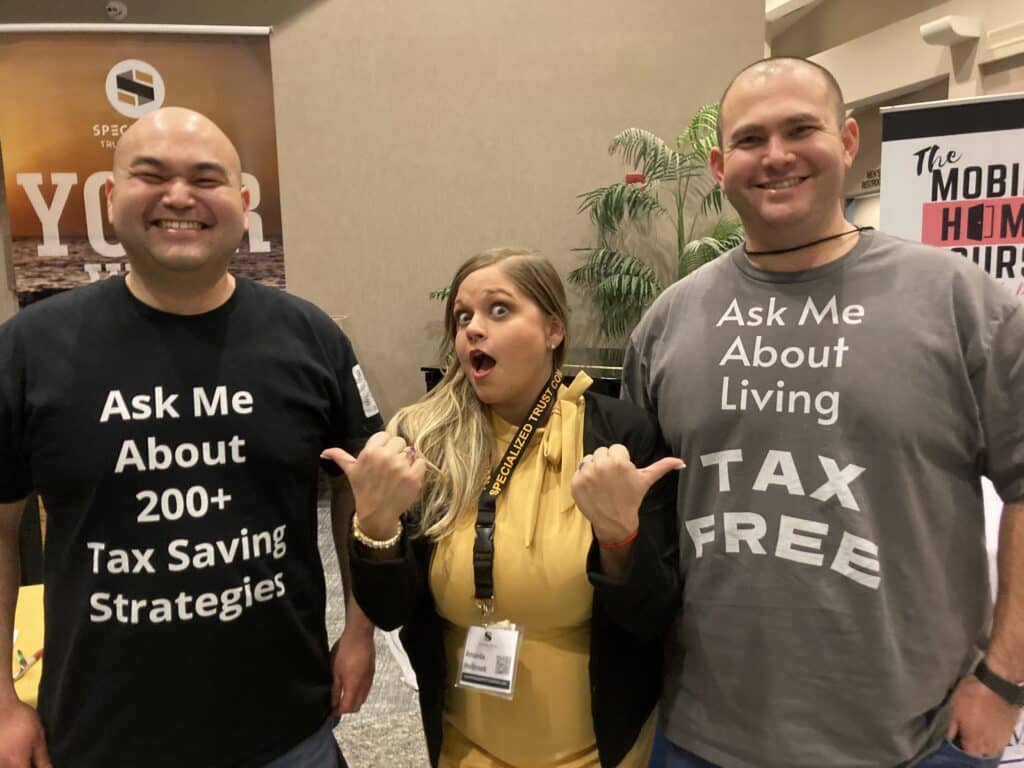
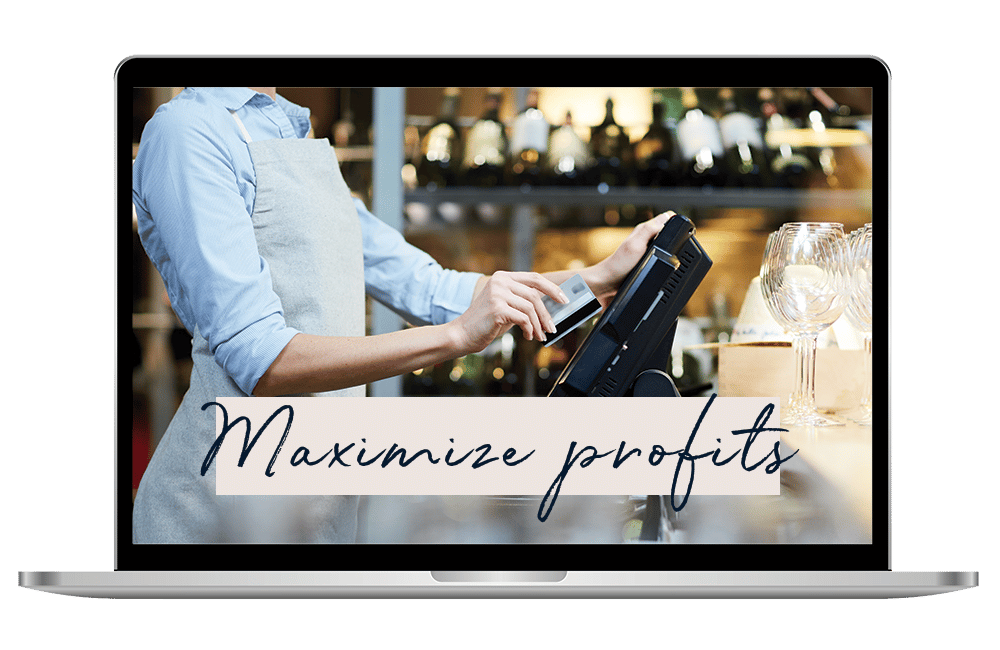
The three costly mistakes you could unknowingly be making?
Find out in this FREE guide and restaurant assessment specifically designed to reveal the unexpected hurdles standing between you and exponential business growth.
Thank You To Our Sponsors
Did You Know That 7 out of 10 Adults Dine Out To Celebrate Birthdays?
You Can Easily Capture This Lucrative Business!
For a limited time only, popmenu is offering our listeners $100 off your first month plus an unchanging lifetime rate.
Request a DEMO:
Want to become a podcast sponsor?
Please get in touch with Roger at roger@restaurantrockstars.com

